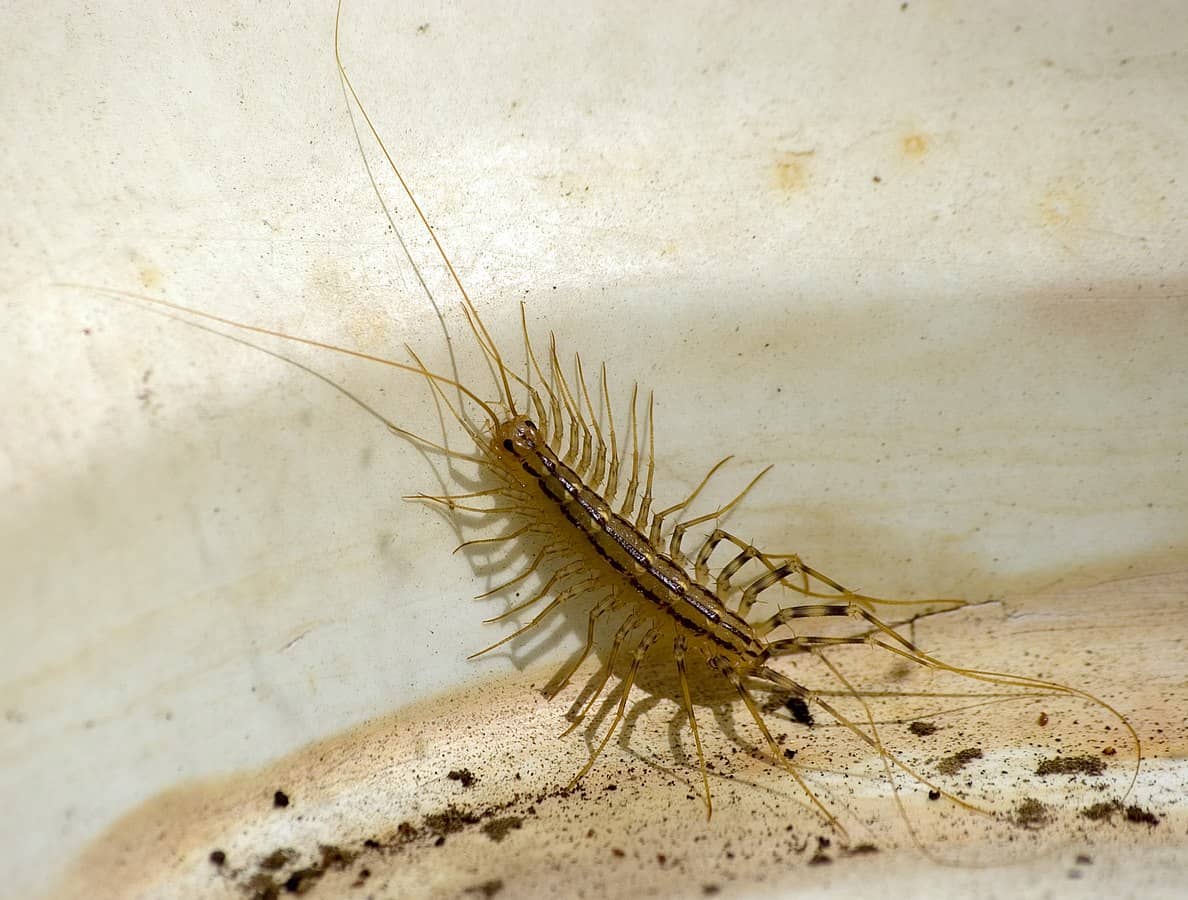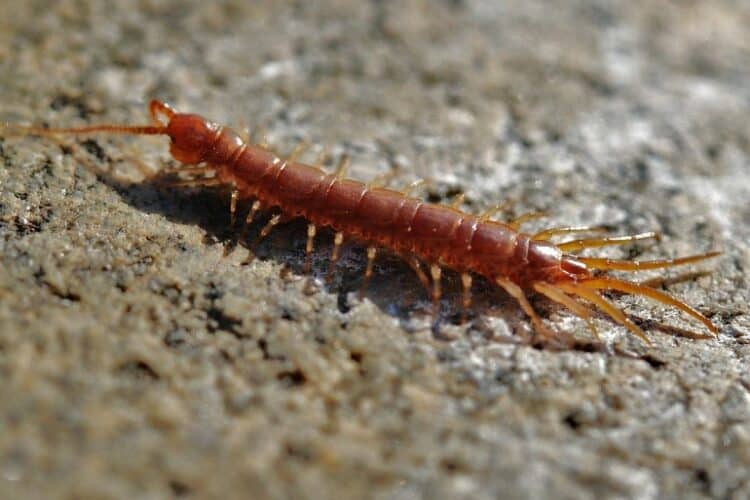Your pet cat may be domesticated, but they never lost their prey drive. Felines have an instinct to chase and swat at moving objects. That’s why laser pointers and wand toys are so much fun! You may even catch your kitty chasing insects from time to time.
Centipedes are one bug your cat may run after and even catch. But you shouldn’t worry if your kitty eats a house centipede. These bugs may give you the creeps, but they are not poisonous to cats. Learn more about what to do if your cat eats a house centipede and what types of centipedes you need to watch out for.
Types of Centipedes
House centipedes get their name because they live inside dwellings. You can find them in damp areas outside, such as under logs in warmer weather. However, centipedes can’t survive cold weather, and they move indoors in colder climates.
There are venomous centipedes in certain parts of the U.S., like the giant red-headed centipede. You should call your local animal hospital or veterinarian immediately if your cat eats one of these bugs, as they are toxic to cats.
What To Do if Your Pet Cat Eats a House Centipede
Don’t be alarmed if your cat vomits or spits up a house centipede. Your kitty’s tummy isn’t used to digesting whole insects. If your cat throws up a centipede but goes on to eat and drink as usual, you don’t need to worry. However, you should call your veterinarian if the vomiting doesn’t subside or your cat won’t eat and drink. Without water or wet food, cats can quickly become dehydrated.
If attacked, a house centipede may fight back and bite your cat. Their bites contain small amounts of venom, just enough to harm other insects. While a centipede bite doesn’t have enough venom to poison your cat, it can cause skin irritation or swelling. Keep an eye on the affected area, as it could become infected.

My Cat Ate a House Centipede: When To Contact a Veterinarian
There are times when a call to your veterinarian is appropriate. Don’t hesitate to reach out if:
- You’re unsure about what type of insect your cat ate
- You live in an area with poisonous centipedes, such as the giant red-headed centipede
- Your cat vomits repeatedly or refuses to eat and drink
- A centipede bite shows signs of infection
House centipedes are commonly found in basements and under sinks. If their presence bothers you, contact an exterminator about pet-safe pest control methods.
Conclusion
House centipedes are creepy-looking bugs with 15 pairs of legs. However, they’re not poisonous to pet cats. Your cat may vomit if they eat one, as whole insects can upset their stomach. Contact your veterinarian if a house centipede bite becomes infected or if you are unsure what bug your cat ate. Also, it’s a good idea to become familiar with any poisonous insects living in your area. While house centipedes are not toxic to cats, other centipedes are.
Featured Photo Courtesy: Pixabay














